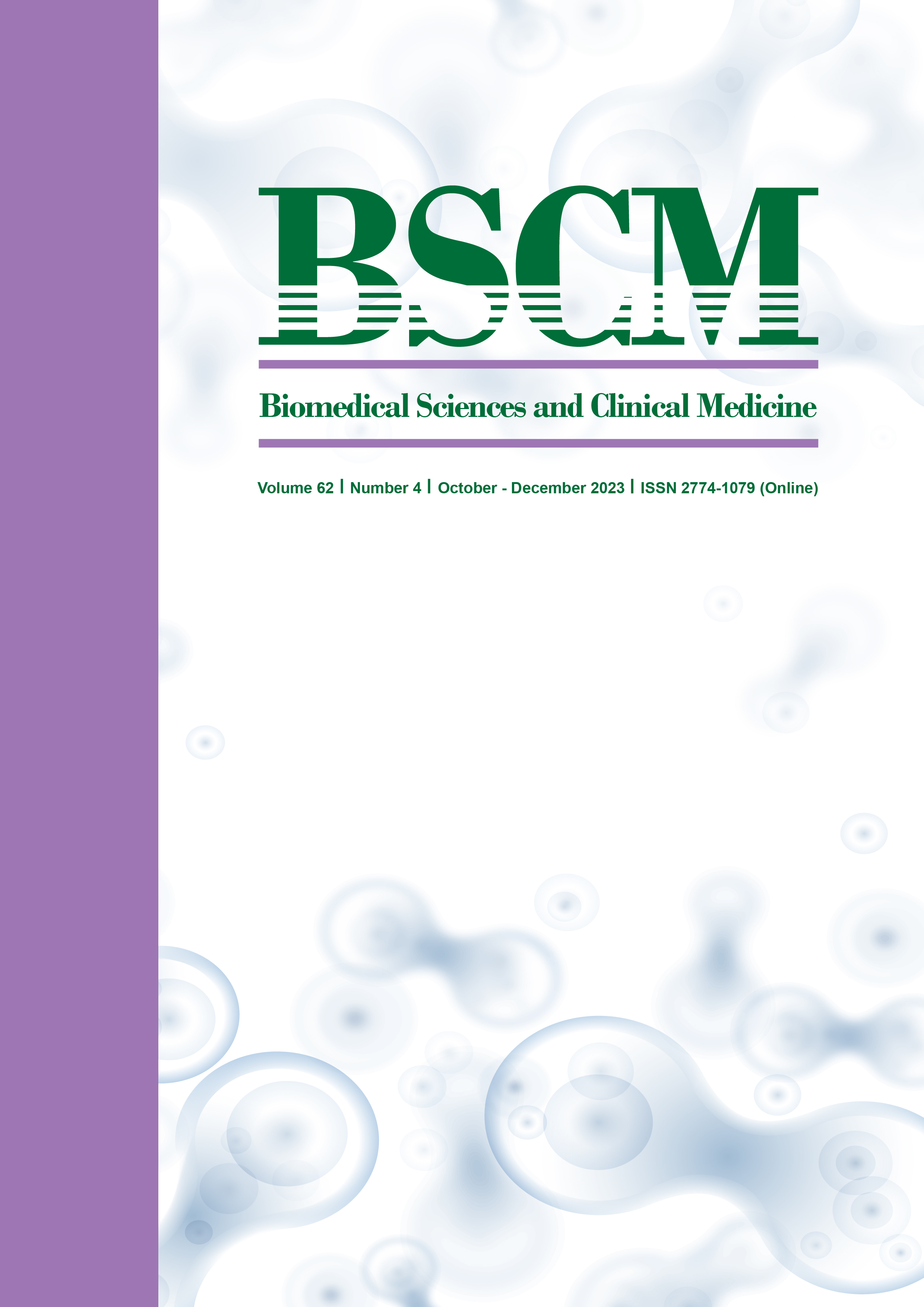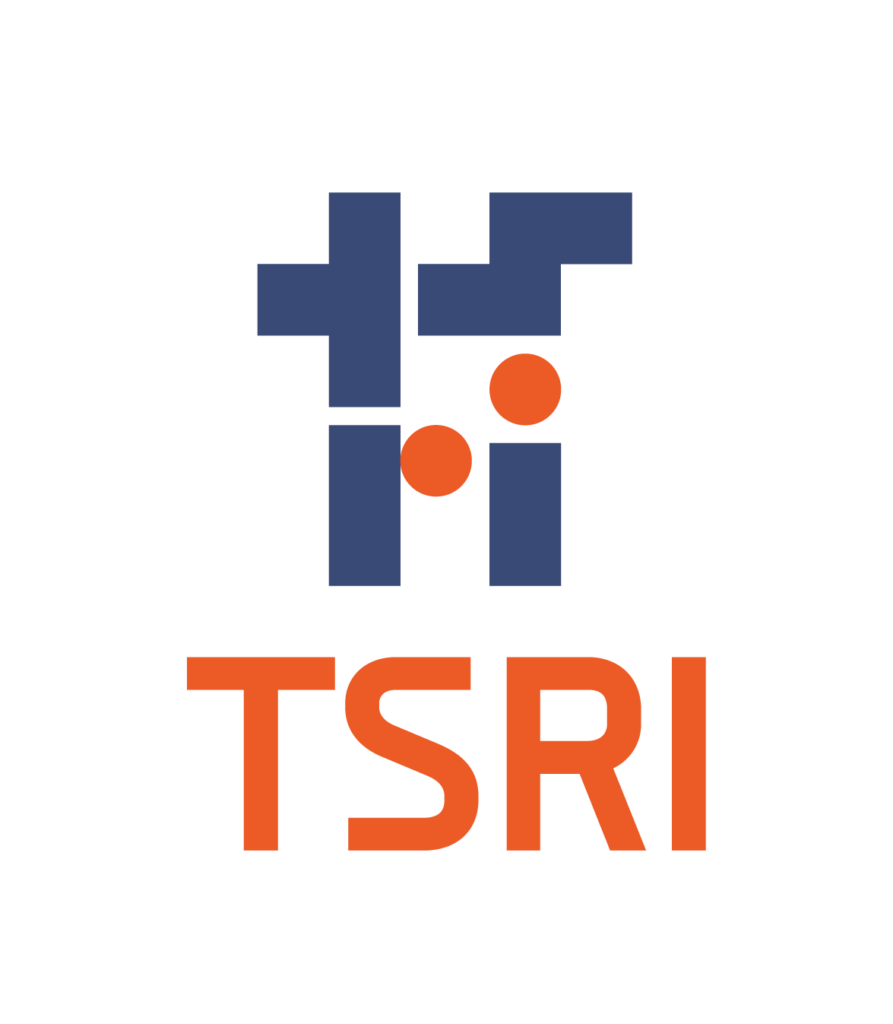Knowledge, Attitudes, Practices, and Acceptance of Gynecologic Cancer Patients Toward Covid-19 Vaccine in Thailand: A Multicenter Cross-sectional Study
Keywords:
COVID-19-vaccine, gynecologic cancer patients, attitude, practiceAbstract
OBJECTIVE To evaluate the knowledge, attitudes, practices (KAP), and acceptance of gynecologic cancer patients from the 4 regions of Thailand related to the COVID-19 vaccine.
METHODS Gynecologic cancer patients from Chiang Mai University Hospital, Khon Kaen University Hospital, Khon Kaen Hospital, Prince of Songkhla University Hospital, and the National Cancer Institute (NCI) in Bangkok were surveyed using a WHO survey instrument.
RESULTS Between February and September 2022, 1,263 patients partici-
pated in this project of whom 1,084 (85.8%) had received the COVID-19 vaccine. The highest rate of vaccination was the NCI followed by Khon Kaen, Chiang Mai, and Songkhla. Of the participants, 28.2% were infected
with COVID-19 and 12.9% of the infected participants were unvaccinated. Regarding KAP, the average scale level of overall participants reported ease in obtaining health literacy, a moderate probability of having severe COVID-19 infection, knowledge and adoption of proper appropriate behavior for the prevention of COVID infection, little stress regarding possible COVID-19 infection, and quite a lot of a significant level of trust in healthcare workers. Most participants generally agreed with the lifting of some regular rules to reduce the risk of infection and often many expressed a feeling of general well-being. The significantly different levels of rating scale by unvaccinated and vaccinated participants in the key areas were as follows: (Patients rated each of the areas investigated on a scale of 0 to 6, with 0 indicating lowest level of agreement/acceptance and 6 indicating the highest level) health ministry recommendations (3.92 vs. 4.16), ease of getting the COVID vaccine (3.6 vs. 3.9), “no need to receive the vaccine due to the disease being rare” (2.6 vs. 2.2), “stress made me not want to get vaccinated” (2.6 vs. 2.1), “if everyone is vaccinated, no need for me to vaccinate” (2.5 vs. 1.9), and the importance of COVID-19 vaccines (3.7 vs. 4.2).
CONCLUSIONS Most gynecologic cancer patients from the 4 regions of Thailand had received the COVID-19 vaccine and exhibited good knowledge, attitudes, and practices related to this pandemic.
References
WHO Health Emergency DashboardWHO (COVID-19) Homepage. World Health Organization [Internet]. 2023 [cited 2023 June 23]. Available from:https://covid19.who.int/region/searo/country/th
Puenpa J, Rattanakomol P, Saengdao N, Chansaenroj J, Yorsaeng R, Suwannakarn K, et al. Molecular characterisation and tracking of severe acute respiratory syndrome coronavirus 2 in Thailand, 2020-2022. Arch Virol. 2023;168:26. PubMed PMID:36593392.
Chenchula S, Karunakaran P, Sharma S, Chavan M. Current evidence on efficacy of COVID-19 booster dose vaccination against the Omicron variant: A systematic review. J Med Virol. 2022;94:2969-76.
Randolph HE, Barreiro LB. Herd Immunity: Understanding COVID-19. Immunity. 2020;52:737-41.
Guan WJ, Liang WH, Zhao Y, Liang HR, Chen ZS, Li YM, et al. Comorbidity and its impact on 1590 patients with COVID-19 in China: a nationwide analysis. Eur Respir J. 2020;55:2000547. PubMed PMID: 32217650.
Kuderer NM, Choueiri TK, Shah DP, Shyr Y, Rubinstein SM, Rivera DR, et al. Clinical impact of COVID-19 on patients with cancer (CCC19): a cohort study. Lancet. 2020;395:1907-18.
Saini KS, Tagliamento M, Lambertini M, McNally R, Romano M, Leone M, et al. Mortality in patients with cancer and coronavirus disease 2019: A systematic review and pooled analysis of 52 studies. Eur J Cancer. 2020;139:43-50.
Poddar P, Maheshwari A, Shylasree TS, Yadav S, Kannan S, Ghosh J, et al. Knowledge, Attitudes and Practices Towards COVID-19: A Cross-Sectional Survey. Indian J Gynecol Oncol. 2022;20:23. PubMed PMID: 35441088.
Chun JY, Kim SI, Park EY, Park SY, Koh SJ, Cha Y, et al. Cancer Patients’ Willingness to Take COVID-19 Vaccination: A Nationwide Multicenter Survey in Korea. Cancers (Basel). 2021;13:3883. PubMed PMID: 34359783.
Prabani KIP, Weerasekara I, Damayanthi HDWT. COVID-19 vaccine acceptance and hesitancy among patients with cancer: a systematic review and meta-analysis. Public Health. 2022; 212:66-75
WHO Regional Office for Europe. Survey tool and guidance. Rapid, simple, flexible behavioral insights on COVID-19. World Health Organization [Internet]. 2020 [cited 2020 October 26]. Available from: https://www.who.int/europe/publications/i/item/WHO-EURO-2020-696-40431-54222
Lemeshow S, Hosmer DW, Klar J, Lwanga SK. Adequacy of sample size in health studies. New York: John Wiley & Sons; 1990.
Pinato DJ, Tabernero J, Bower M, Scotti L, Patel M, Colomba E, et al. Prevalence and impact of COVID-19 sequelae on treatment and survival of patients with cancer who recovered from SARSCoV-2 infection: evidence from the OnCovid retrospective, multicentre registry study. Lancet Oncol.2021;22:1669-80.
Gheorghe AS, Negru ŞM, Nițipir C, Mazilu L, Marinca M, Gafton B, et al. Knowledge, attitudes and practices related to the COVID-19 outbreak among Romanian adults with cancer: a cross-sectional national survey. ESMO Open 2021;6:100027. PubMed PMID: 33399089.











